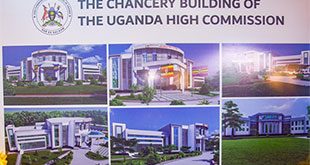
Moroto, Uganda | Patricia Akankwatsa | Karamoja, a region in Uganda long plagued by hunger and food insecurity, is the focus of a newly launched project by the European Union, the Food and Agriculture Organization of the United Nations (FAO), and the United Nations World Food Programme (WFP). With a €5 million budget, the initiative aims to end the hunger cycle in this drought-prone and conflict- affected area by building resilience and promoting sustainable food production systems.
For decades, Karamoja’s communities have faced recurring droughts, livestock diseases, and conflicts, severely impacting their ability to maintain stable food supplies. Despite past efforts, food insecurity has remained high, and today, over 70% of Karamoja’s population lives below the poverty line. Malnutrition is prevalent, with stunting affecting more than 35% of children under five.
The new project, Improving Food Security and Resilience of Food Production Systems in Karamoja, seeks to tackle these long-standing issues. Carolina Hedstrom, EU Head of Cooperation, emphasised the project’s alignment with the EU’s mission of fostering sustainable growth, climate resilience, and social inclusion.
“This project is a crucial step towards achieving our shared goals of promoting green and climate transition, sustainable growth, and democratic governance,” she said. She highlighted the potential to create sustainable and inclusive food systems by empowering local communities, especially youth and women.
FAO’s Dr Charles Owach outlined the initiative’s objectives, which include strengthening agri- food value chains and empowering smallholder farmers, women, and youth to build resilient agri-businesses.
“This significant investment will enable us to implement critical interventions that will bolster food security, improve nutrition, and enhance the livelihoods of vulnerable communities in Karamoja. By strengthening agricultural value chains, promoting climate-smart practices, and empowering smallholder farmers, we can build a more resilient and prosperous future for the region,”
Marcus Prior, Deputy Country Director of WFP Uganda, stressed the importance of addressing the root causes of hunger and building resilience to climate shocks.
“Access to food is a fundamental right. Without it, the cycle of poverty deepens,” Prior noted. WFP’s efforts will focus on increasing food production, diversifying livelihoods, and supporting climate adaptation measures.
“WFP will leverage our extensive reach on the ground to support communities in Karamoja in managing the risks and shocks they encounter,”
Rtd Major General David Kasura-Kyomukama the Permanent Secretary – Ministry of Agriculture, Animal Industry and Fisheries highlighted the project’s four primary goals: building inclusive food systems, promoting environmental sustainability, enhancing social resilience, and supporting government capacity to address food crises.
Kasura-Kyomukama emphasized that the project would support Uganda’s Parish Development Model, a grassroots initiative aimed at poverty reduction and wealth creation.
The project is expected to benefit over 16,000 households directly and an estimated 80,000 people across Karamoja’s nine districts. With a focus on sustainable agriculture, resilience, and community engagement, the initiative sets a hopeful path forward for Karamoja’s communities.
This collaboration between the EU, FAO, WFP, and the Ugandan government demonstrates a united commitment to ending hunger and achieving Sustainable Development Goal 2: Zero Hunger. By addressing the root causes of food insecurity and promoting sustainable development, this initiative aims to provide Karamoja with a more secure and prosperous future.
 The Independent Uganda: You get the Truth we Pay the Price
The Independent Uganda: You get the Truth we Pay the Price



